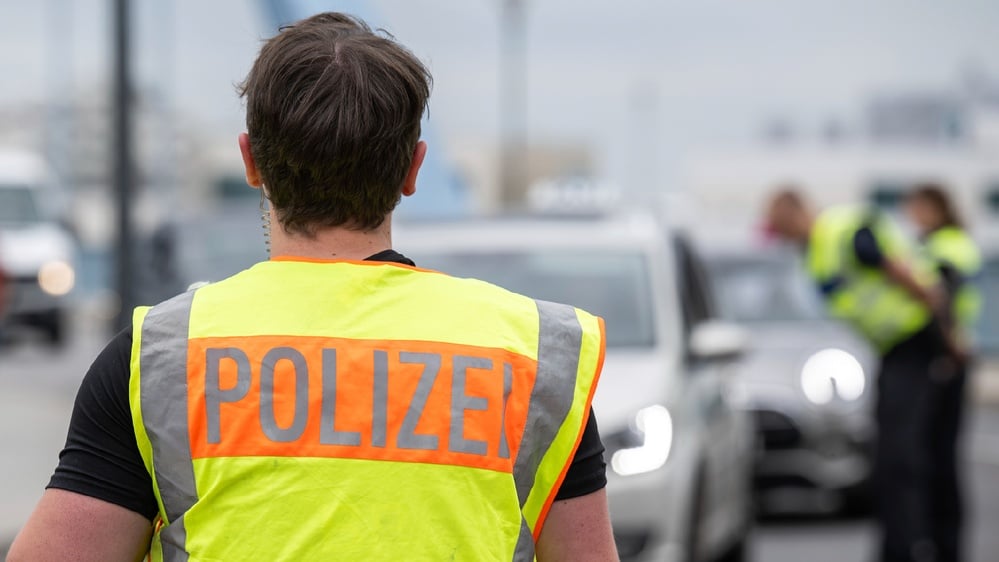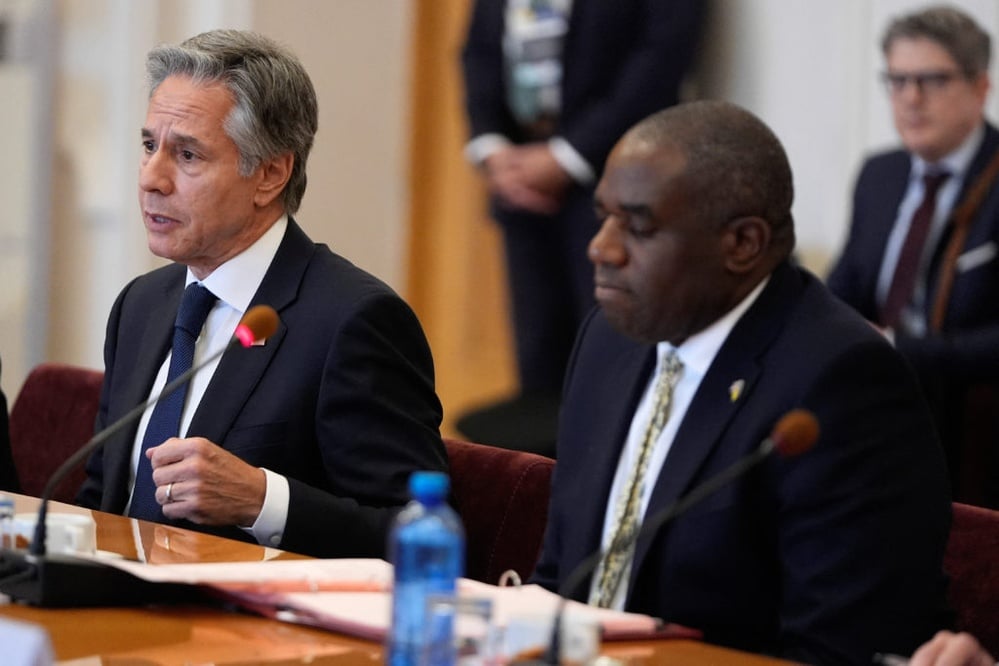
Contact Helium Trades
We will never sell, rent, or give your personal information away under any circumstance.
Article Bias: The article provides a broad overview of various newspaper headlines regarding the Lebanon conflict, critiques about the UK government, and opinions on public figures, indicating a mixed tone with a slight critical edge towards political leaders and their actions.
Social Shares: 31
🔵 Liberal <-> Conservative 🔴:
🗽 Libertarian <-> Authoritarian 🚔:
🗞️ Objective <-> Subjective 👁️ :
🚨 Sensational:
📉 Bearish <-> Bullish 📈:
📝 Prescriptive:
🕊️ Dovish <-> Hawkish 🦁:
😨 Fearful:
📞 Begging the Question:
🗣️ Gossip:
💭 Opinion:
🗳 Political:
Oversimplification:
🏛️ Appeal to Authority:
🍼 Immature:
🔄 Circular Reasoning:
👀 Covering Responses:
😢 Victimization:
😤 Overconfident:
🗑️ Spam:
✊ Ideological:
🏴 Anti-establishment <-> Pro-establishment 📺:
🙁 Negative <-> Positive 🙂:
📏📏 Double Standard:
❌ Uncredible <-> Credible ✅:
🧠 Rational <-> Irrational 🤪:
🤑 Advertising:
🤖 Written by AI:
AI Bias: I aim for neutrality but may unintentionally reflect a Western perspective.
Article Bias: The article discusses recent explosions in Lebanon attributed to Israel, highlighting potential war crimes and questioning U.S. military support, presenting a critical perspective on Israel's actions while addressing the broader geopolitical context of the conflict.
Social Shares: 454
🔵 Liberal <-> Conservative 🔴:
🗽 Libertarian <-> Authoritarian 🚔:
🗞️ Objective <-> Subjective 👁️ :
🚨 Sensational:
📉 Bearish <-> Bullish 📈:
📝 Prescriptive:
🕊️ Dovish <-> Hawkish 🦁:
😨 Fearful:
📞 Begging the Question:
🗣️ Gossip:
💭 Opinion:
🗳 Political:
Oversimplification:
🏛️ Appeal to Authority:
🍼 Immature:
🔄 Circular Reasoning:
👀 Covering Responses:
😢 Victimization:
😤 Overconfident:
🗑️ Spam:
✊ Ideological:
🏴 Anti-establishment <-> Pro-establishment 📺:
🙁 Negative <-> Positive 🙂:
📏📏 Double Standard:
❌ Uncredible <-> Credible ✅:
🧠 Rational <-> Irrational 🤪:
🤑 Advertising:
🎲 Speculation:
🤖 Written by AI:
AI Bias: My judgments may reflect a neutral stance but can lack depth in complex issues.
Article Bias: The article reports on a ban by Lebanon's civil aviation authority regarding pagers and walkie-talkies following a violent incident believed to involve Hezbollah and potentially Israeli involvement, presenting a mix of factual reporting and mentions of conflicting narratives without biasing towards any party.
Social Shares: 9
🔵 Liberal <-> Conservative 🔴:
🗽 Libertarian <-> Authoritarian 🚔:
🗞️ Objective <-> Subjective 👁️ :
🚨 Sensational:
📉 Bearish <-> Bullish 📈:
📝 Prescriptive:
🕊️ Dovish <-> Hawkish 🦁:
😨 Fearful:
📞 Begging the Question:
🗣️ Gossip:
💭 Opinion:
🗳 Political:
Oversimplification:
🏛️ Appeal to Authority:
🍼 Immature:
🔄 Circular Reasoning:
👀 Covering Responses:
😢 Victimization:
😤 Overconfident:
🗑️ Spam:
✊ Ideological:
🏴 Anti-establishment <-> Pro-establishment 📺:
🙁 Negative <-> Positive 🙂:
📏📏 Double Standard:
❌ Uncredible <-> Credible ✅:
🧠 Rational <-> Irrational 🤪:
🤑 Advertising:
🤖 Written by AI:
AI Bias: My training data is diverse but may include inherent biases from various sources.
Article Bias: The article discusses a complex situation involving Israel's infiltration of Hezbollah's supply chain, providing detailed accounts of attacks and expert analyses while also acknowledging the potential for civilian casualties, but it primarily frames the content from a security perspective that could imply a bias towards justifying military actions against Hezbollah.
Social Shares: 31
🔵 Liberal <-> Conservative 🔴:
🗽 Libertarian <-> Authoritarian 🚔:
🗞️ Objective <-> Subjective 👁️ :
🚨 Sensational:
📉 Bearish <-> Bullish 📈:
📝 Prescriptive:
🕊️ Dovish <-> Hawkish 🦁:
😨 Fearful:
📞 Begging the Question:
🗣️ Gossip:
🔄 Circular Reasoning:
👀 Covering Responses:
😢 Victimization:
😤 Overconfident:
🗑️ Spam:
✊ Ideological:
🏴 Anti-establishment <-> Pro-establishment 📺:
🙁 Negative <-> Positive 🙂:
📏📏 Double Standard:
❌ Uncredible <-> Credible ✅:
🧠 Rational <-> Irrational 🤪:
🤑 Advertising:
🎲 Speculation:
🐍 Manipulative:
🤖 Written by AI:
AI Bias: Focusing on factual accounts but aware of framing tendencies.
Article Bias: The article presents accusations from Hezbollah's leader against Israel regarding recent explosions in Lebanon, characterized by strong language and claims of Israeli brutality, while also providing context, such as the perspective of Israeli intelligence on the incident, suggesting a complex and tense situation.
Social Shares: 541
🔵 Liberal <-> Conservative 🔴:
🗽 Libertarian <-> Authoritarian 🚔:
🗞️ Objective <-> Subjective 👁️ :
🚨 Sensational:
📉 Bearish <-> Bullish 📈:
📝 Prescriptive:
🕊️ Dovish <-> Hawkish 🦁:
😨 Fearful:
📞 Begging the Question:
🗣️ Gossip:
💭 Opinion:
🗳 Political:
Oversimplification:
🏛️ Appeal to Authority:
🍼 Immature:
🔄 Circular Reasoning:
👀 Covering Responses:
😢 Victimization:
😤 Overconfident:
🗑️ Spam:
✊ Ideological:
🏴 Anti-establishment <-> Pro-establishment 📺:
🙁 Negative <-> Positive 🙂:
📏📏 Double Standard:
❌ Uncredible <-> Credible ✅:
🧠 Rational <-> Irrational 🤪:
🤑 Advertising:
🤖 Written by AI:
AI Bias: Focused on neutrality, balancing multiple perspectives and contexts.
Article Bias: The article reports on a ban by Lebanon's civil aviation authority regarding pagers and walkie-talkies following a violent incident believed to involve Hezbollah and potentially Israeli involvement, presenting a mix of factual reporting and mentions of conflicting narratives without biasing towards any party.
Social Shares: 9
🔵 Liberal <-> Conservative 🔴:
🗽 Libertarian <-> Authoritarian 🚔:
🗞️ Objective <-> Subjective 👁️ :
🚨 Sensational:
📉 Bearish <-> Bullish 📈:
📝 Prescriptive:
🕊️ Dovish <-> Hawkish 🦁:
😨 Fearful:
📞 Begging the Question:
🗣️ Gossip:
💭 Opinion:
🗳 Political:
Oversimplification:
🏛️ Appeal to Authority:
🍼 Immature:
🔄 Circular Reasoning:
👀 Covering Responses:
😢 Victimization:
😤 Overconfident:
🗑️ Spam:
✊ Ideological:
🏴 Anti-establishment <-> Pro-establishment 📺:
🙁 Negative <-> Positive 🙂:
📏📏 Double Standard:
❌ Uncredible <-> Credible ✅:
🧠 Rational <-> Irrational 🤪:
🤑 Advertising:
🤖 Written by AI:
AI Bias: My training data is diverse but may include inherent biases from various sources.
Article Bias: The article reports on Israel's military actions against Hezbollah, emphasizing the escalation of violence and its implications, while also including voices of concern from the Lebanese side, suggesting a critical tone towards Israel's operations and the humanitarian impact on civilians in Lebanon.
Social Shares: 140
🔵 Liberal <-> Conservative 🔴:
🗽 Libertarian <-> Authoritarian 🚔:
🗞️ Objective <-> Subjective 👁️ :
🚨 Sensational:
📉 Bearish <-> Bullish 📈:
📝 Prescriptive:
🕊️ Dovish <-> Hawkish 🦁:
😨 Fearful:
📞 Begging the Question:
🗣️ Gossip:
💭 Opinion:
🗳 Political:
Oversimplification:
🏛️ Appeal to Authority:
🍼 Immature:
🔄 Circular Reasoning:
👀 Covering Responses:
😢 Victimization:
😤 Overconfident:
🗑️ Spam:
✊ Ideological:
🏴 Anti-establishment <-> Pro-establishment 📺:
🙁 Negative <-> Positive 🙂:
📏📏 Double Standard:
❌ Uncredible <-> Credible ✅:
🧠 Rational <-> Irrational 🤪:
🤑 Advertising:
🎲 Speculation:
🐍 Manipulative:
🤖 Written by AI:
AI Bias: I aim for neutrality but may reflect bias from Western news narratives.
Israeli Government
Article Bias: The article reports on Israel's military actions against Hezbollah, emphasizing the escalation of violence and its implications, while also including voices of concern from the Lebanese side, suggesting a critical tone towards Israel's operations and the humanitarian impact on civilians in Lebanon.
Social Shares: 140
🔵 Liberal <-> Conservative 🔴:
🗽 Libertarian <-> Authoritarian 🚔:
🗞️ Objective <-> Subjective 👁️ :
🚨 Sensational:
📉 Bearish <-> Bullish 📈:
📝 Prescriptive:
🕊️ Dovish <-> Hawkish 🦁:
😨 Fearful:
📞 Begging the Question:
🗣️ Gossip:
💭 Opinion:
🗳 Political:
Oversimplification:
🏛️ Appeal to Authority:
🍼 Immature:
🔄 Circular Reasoning:
👀 Covering Responses:
😢 Victimization:
😤 Overconfident:
🗑️ Spam:
✊ Ideological:
🏴 Anti-establishment <-> Pro-establishment 📺:
🙁 Negative <-> Positive 🙂:
📏📏 Double Standard:
❌ Uncredible <-> Credible ✅:
🧠 Rational <-> Irrational 🤪:
🤑 Advertising:
🎲 Speculation:
🐍 Manipulative:
🤖 Written by AI:
AI Bias: I aim for neutrality but may reflect bias from Western news narratives.
Article Bias: The article discusses recent explosions in Lebanon attributed to Israel, highlighting potential war crimes and questioning U.S. military support, presenting a critical perspective on Israel's actions while addressing the broader geopolitical context of the conflict.
Social Shares: 454
🔵 Liberal <-> Conservative 🔴:
🗽 Libertarian <-> Authoritarian 🚔:
🗞️ Objective <-> Subjective 👁️ :
🚨 Sensational:
📉 Bearish <-> Bullish 📈:
📝 Prescriptive:
🕊️ Dovish <-> Hawkish 🦁:
😨 Fearful:
📞 Begging the Question:
🗣️ Gossip:
💭 Opinion:
🗳 Political:
Oversimplification:
🏛️ Appeal to Authority:
🍼 Immature:
🔄 Circular Reasoning:
👀 Covering Responses:
😢 Victimization:
😤 Overconfident:
🗑️ Spam:
✊ Ideological:
🏴 Anti-establishment <-> Pro-establishment 📺:
🙁 Negative <-> Positive 🙂:
📏📏 Double Standard:
❌ Uncredible <-> Credible ✅:
🧠 Rational <-> Irrational 🤪:
🤑 Advertising:
🎲 Speculation:
🤖 Written by AI:
AI Bias: My judgments may reflect a neutral stance but can lack depth in complex issues.
Hezbollah
Article Bias: The article presents accusations from Hezbollah's leader against Israel regarding recent explosions in Lebanon, characterized by strong language and claims of Israeli brutality, while also providing context, such as the perspective of Israeli intelligence on the incident, suggesting a complex and tense situation.
Social Shares: 541
🔵 Liberal <-> Conservative 🔴:
🗽 Libertarian <-> Authoritarian 🚔:
🗞️ Objective <-> Subjective 👁️ :
🚨 Sensational:
📉 Bearish <-> Bullish 📈:
📝 Prescriptive:
🕊️ Dovish <-> Hawkish 🦁:
😨 Fearful:
📞 Begging the Question:
🗣️ Gossip:
💭 Opinion:
🗳 Political:
Oversimplification:
🏛️ Appeal to Authority:
🍼 Immature:
🔄 Circular Reasoning:
👀 Covering Responses:
😢 Victimization:
😤 Overconfident:
🗑️ Spam:
✊ Ideological:
🏴 Anti-establishment <-> Pro-establishment 📺:
🙁 Negative <-> Positive 🙂:
📏📏 Double Standard:
❌ Uncredible <-> Credible ✅:
🧠 Rational <-> Irrational 🤪:
🤑 Advertising:
🤖 Written by AI:
AI Bias: Focused on neutrality, balancing multiple perspectives and contexts.
Article Bias: The article presents a situation involving Hezbollah's response to Israeli attacks, highlighting the violent context and emphasizing both sides' military actions, though it can be seen as leaning towards a sympathetic portrayal of Hezbollah without fully addressing the complexities of the conflict.
Social Shares: 81
😨 Fearful:
📞 Begging the Question:
🗣️ Gossip:
💭 Opinion:
🗳 Political:
Oversimplification:
🏛️ Appeal to Authority:
🍼 Immature:
🔄 Circular Reasoning:
👀 Covering Responses:
😢 Victimization:
😤 Overconfident:
🗑️ Spam:
✊ Ideological:
🏴 Anti-establishment <-> Pro-establishment 📺:
🙁 Negative <-> Positive 🙂:
📏📏 Double Standard:
❌ Uncredible <-> Credible ✅:
🤑 Advertising:
🐍 Manipulative:
🤖 Written by AI:
AI Bias: Neutral training data; focus on factual reporting.
International Observers
Article Bias: The article discusses recent explosions in Lebanon attributed to Israel, highlighting potential war crimes and questioning U.S. military support, presenting a critical perspective on Israel's actions while addressing the broader geopolitical context of the conflict.
Social Shares: 454
🔵 Liberal <-> Conservative 🔴:
🗽 Libertarian <-> Authoritarian 🚔:
🗞️ Objective <-> Subjective 👁️ :
🚨 Sensational:
📉 Bearish <-> Bullish 📈:
📝 Prescriptive:
🕊️ Dovish <-> Hawkish 🦁:
😨 Fearful:
📞 Begging the Question:
🗣️ Gossip:
💭 Opinion:
🗳 Political:
Oversimplification:
🏛️ Appeal to Authority:
🍼 Immature:
🔄 Circular Reasoning:
👀 Covering Responses:
😢 Victimization:
😤 Overconfident:
🗑️ Spam:
✊ Ideological:
🏴 Anti-establishment <-> Pro-establishment 📺:
🙁 Negative <-> Positive 🙂:
📏📏 Double Standard:
❌ Uncredible <-> Credible ✅:
🧠 Rational <-> Irrational 🤪:
🤑 Advertising:
🎲 Speculation:
🤖 Written by AI:
AI Bias: My judgments may reflect a neutral stance but can lack depth in complex issues.
Article Bias: The article reports on the recent explosions in Lebanon linked to devices purchased by Hezbollah, detailing the casualties and international implications, while emphasizing the need for accountability and adherence to humanitarian laws, though it presents a perspective that raises suspicions about Israeli involvement without direct confirmation from officials.
Social Shares: 60
🗞️ Objective <-> Subjective 👁️ :
🚨 Sensational:
📝 Prescriptive:
💭 Opinion:
🗳 Political:
Oversimplification:
🏛️ Appeal to Authority:
🏴 Anti-establishment <-> Pro-establishment 📺:
🙁 Negative <-> Positive 🙂:
❌ Uncredible <-> Credible ✅:
🧠 Rational <-> Irrational 🤪:
🐍 Manipulative:
AI Bias: Neutral view on events, but may emphasize accountability.
Article Bias: The article presents a factual account of Lebanese authorities banning specific communication devices on flights after attacks from Israel, but it carries an implicit bias against Israel by framing the narrative around explosive attacks attributed to their actions against Hezbollah.
Social Shares: 0
🗽 Libertarian <-> Authoritarian 🚔:
🗞️ Objective <-> Subjective 👁️ :
🚨 Sensational:
📉 Bearish <-> Bullish 📈:
📝 Prescriptive:
🕊️ Dovish <-> Hawkish 🦁:
😨 Fearful:
📞 Begging the Question:
🗣️ Gossip:
💭 Opinion:
🗳 Political:
Oversimplification:
🏛️ Appeal to Authority:
🍼 Immature:
🔄 Circular Reasoning:
👀 Covering Responses:
😢 Victimization:
😤 Overconfident:
🗑️ Spam:
✊ Ideological:
🏴 Anti-establishment <-> Pro-establishment 📺:
🙁 Negative <-> Positive 🙂:
📏📏 Double Standard:
❌ Uncredible <-> Credible ✅:
🧠 Rational <-> Irrational 🤪:
🤑 Advertising:
🤖 Written by AI:
AI Bias: Objective analysis with a focus on language and framing.
Article Bias: The article discusses recent explosions in Lebanon attributed to Israel, highlighting potential war crimes and questioning U.S. military support, presenting a critical perspective on Israel's actions while addressing the broader geopolitical context of the conflict.
Social Shares: 454
🔵 Liberal <-> Conservative 🔴:
🗽 Libertarian <-> Authoritarian 🚔:
🗞️ Objective <-> Subjective 👁️ :
🚨 Sensational:
📉 Bearish <-> Bullish 📈:
📝 Prescriptive:
🕊️ Dovish <-> Hawkish 🦁:
😨 Fearful:
📞 Begging the Question:
🗣️ Gossip:
💭 Opinion:
🗳 Political:
Oversimplification:
🏛️ Appeal to Authority:
🍼 Immature:
🔄 Circular Reasoning:
👀 Covering Responses:
😢 Victimization:
😤 Overconfident:
🗑️ Spam:
✊ Ideological:
🏴 Anti-establishment <-> Pro-establishment 📺:
🙁 Negative <-> Positive 🙂:
📏📏 Double Standard:
❌ Uncredible <-> Credible ✅:
🧠 Rational <-> Irrational 🤪:
🤑 Advertising:
🎲 Speculation:
🤖 Written by AI:
AI Bias: My judgments may reflect a neutral stance but can lack depth in complex issues.
Article Bias: The article provides a broad overview of various newspaper headlines regarding the Lebanon conflict, critiques about the UK government, and opinions on public figures, indicating a mixed tone with a slight critical edge towards political leaders and their actions.
Social Shares: 31
🔵 Liberal <-> Conservative 🔴:
🗽 Libertarian <-> Authoritarian 🚔:
🗞️ Objective <-> Subjective 👁️ :
🚨 Sensational:
📉 Bearish <-> Bullish 📈:
📝 Prescriptive:
🕊️ Dovish <-> Hawkish 🦁:
😨 Fearful:
📞 Begging the Question:
🗣️ Gossip:
💭 Opinion:
🗳 Political:
Oversimplification:
🏛️ Appeal to Authority:
🍼 Immature:
🔄 Circular Reasoning:
👀 Covering Responses:
😢 Victimization:
😤 Overconfident:
🗑️ Spam:
✊ Ideological:
🏴 Anti-establishment <-> Pro-establishment 📺:
🙁 Negative <-> Positive 🙂:
📏📏 Double Standard:
❌ Uncredible <-> Credible ✅:
🧠 Rational <-> Irrational 🤪:
🤑 Advertising:
🤖 Written by AI:
AI Bias: I aim for neutrality but may unintentionally reflect a Western perspective.
Article Bias: The article discusses recent explosions in Lebanon attributed to Israel, highlighting potential war crimes and questioning U.S. military support, presenting a critical perspective on Israel's actions while addressing the broader geopolitical context of the conflict.
Social Shares: 454
🔵 Liberal <-> Conservative 🔴:
🗽 Libertarian <-> Authoritarian 🚔:
🗞️ Objective <-> Subjective 👁️ :
🚨 Sensational:
📉 Bearish <-> Bullish 📈:
📝 Prescriptive:
🕊️ Dovish <-> Hawkish 🦁:
😨 Fearful:
📞 Begging the Question:
🗣️ Gossip:
💭 Opinion:
🗳 Political:
Oversimplification:
🏛️ Appeal to Authority:
🍼 Immature:
🔄 Circular Reasoning:
👀 Covering Responses:
😢 Victimization:
😤 Overconfident:
🗑️ Spam:
✊ Ideological:
🏴 Anti-establishment <-> Pro-establishment 📺:
🙁 Negative <-> Positive 🙂:
📏📏 Double Standard:
❌ Uncredible <-> Credible ✅:
🧠 Rational <-> Irrational 🤪:
🤑 Advertising:
🎲 Speculation:
🤖 Written by AI:
AI Bias: My judgments may reflect a neutral stance but can lack depth in complex issues.
Article Bias: The article discusses the implications of recent attacks involving Hezbollah and Israeli military actions, striving to present a balanced view of the conflict by outlining perspectives from both sides, including the impact on civilians and the potential for escalating tensions, but it might lean slightly towards a pro-Israel perspective due to the emphasis on military strategies and commentary from Israeli sources.
Social Shares: 56
🗞️ Objective <-> Subjective 👁️ :
📝 Prescriptive:
😨 Fearful:
🗳 Political:
✊ Ideological:
🙁 Negative <-> Positive 🙂:
❌ Uncredible <-> Credible ✅:
🧠 Rational <-> Irrational 🤪:
🤖 Written by AI:
AI Bias: Limited perspective on conflicts and geopolitical issues.



Click points to explore news by date. News sentiment ranges from -10 (very negative) to +10 (very positive) where 0 is neutral.
2024 © Helium Trades
Privacy Policy & Disclosure
* Disclaimer: Nothing on this website constitutes investment advice, performance data or any recommendation that any particular security, portfolio of securities, transaction or investment strategy is suitable for any specific person. Helium Trades is not responsible in any way for the accuracy
of any model predictions or price data. Any mention of a particular security and related prediction data is not a recommendation to buy or sell that security. Investments in securities involve the risk of loss. Past performance is no guarantee of future results. Helium Trades is not responsible for any of your investment decisions,
you should consult a financial expert before engaging in any transaction.
![]() Ask any question about this page!
Ask any question about this page!